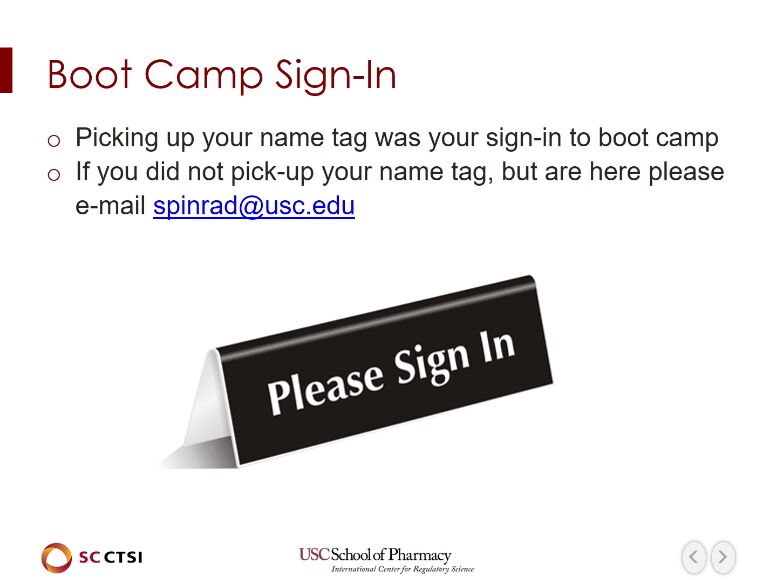- Introduction
- SC CTSI Clinical Research Support (CRS)
- Monitoring module
- Establishing monitoring pool at USC
- USC 5 Graduate Programs in Regulatory Sciences
- Regulatory Science Highlights
- Boot Camps and Boot Camp Recordings
- Logistics
- Audience polling
- How would you describe yourself?
- In which of the following types of studies are you involved?
- Where are you from?
- Are you funded by a CTSA Hub?
- What is your knowledge of medical device clinical trials?
- What learnings do you hope to take away from today?
- Audience polling
- Sponsors that submit a Premarket Approval Application to the FDA are typically required to conduct the following studies:
Ans: (C) Feasibility and pivotal - FDA requires that you apply for an Investigational Device Exemption (IDE) for:
Ans: (C) Significant Risk Devices - Study documents that should be monitored can include:
Ans: (E) a, b & c – Quality of life question responses, Blood pressure recordings as well as Signed informed consent documents. - Why are clinical trials performed?
Ans: (E) a, b & c – to obtain regulatory approvals, to receive reimbursements from insurance companies and to make marketing claims about the product. - Sponsors of IDEs are exempt from the requirements for design controls. (T/F)
Ans: (B) False
- Sponsors that submit a Premarket Approval Application to the FDA are typically required to conduct the following studies:
Regulatory Science Symposium: Clinical Trials with Medical Devices Session 1: Introduction (2019)
In this series, we will discuss considerations, regulations and resources to utilize when conducting clinical trials with medical devices.
Chair and Associate Professor of Regulatory and Quality Sciences Associate Director, D. K. Kim International Center for Regulatory Science

